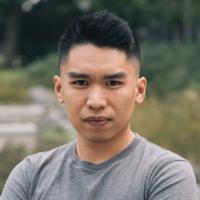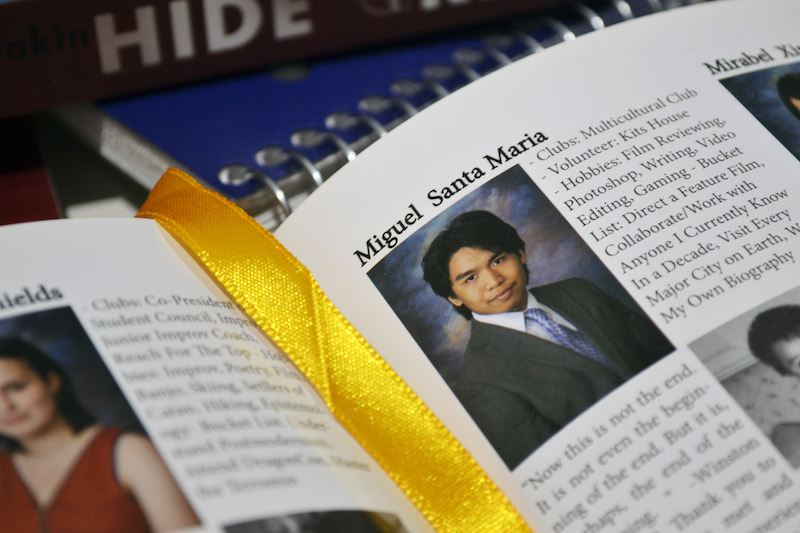For many young immigrants, rebooting school life in another country comes with a lot of cultural confusion and frustration. But 10 years ago, I desperately needed a reboot.
Before immigrating to Vancouver in 2009, I attended a private all-boys school in Manila. Bullying and harassment were rampant, and for years I endured physical and verbal abuse from my classmates. School staff were either blissfully apathetic or, worse, part of the toxicity.
In an effort to fit in with the school’s culture of cruelty, I did some stupid things that I regret.
Needless to say, when I started at Kitsilano Secondary School in 2009 I was lonely and reclusive. I was also anxious about what high school in Canada would be like, a condition derived largely from my movie expectations. I pictured a cutthroat world of cliques where you were either backstabbed by Mean Girls or shoved into the locker by huge bullies.
I was proven wrong almost immediately.
My new classmates had their differences, and it was clear who were the jocks and who the drama kids. Some weren’t exactly upstanding students, while others hid out in cliques composed of other international students.
Yet remarkably, almost everyone got along with each other. It didn’t matter if that girl wouldn’t shut up about her book dreams, or if that guy wouldn’t stop making the same dildo joke. I felt a sense of elation as part of this camaraderie, and the ease of just getting through each day was a revelation.
In my first year at Kits, I felt a new kind of support. Many people showed genuine interest in explaining this new place and culture to me. A few became close friends. Teachers didn’t hand back my C-minus marks to punch me down; they actually took the time to talk through my worries while we cracked jokes about Canadian history. It wasn’t out of a sense of obligation. They simply gave a shit.
That kind of enthusiasm was infectious. It changed me. I grew my hair much longer. I became overly talkative in class; social awkwardness be damned. I got a huge self-esteem boost from my friends and even asked out a girl for the first time (spoiler alert: it was hilariously embarrassing). I signed up for whatever creative arts classes were available simply because I could. I nerded out over filmmakers with people who knew what I was talking about. And by some miracle, I found P.E. to be kind of fun.
I started thinking outside myself and what I’d previously understood about the world. School was no longer tedious or a matter of survival; there were things worth caring about and people worth caring for. Just as they had approached me with openness and curiosity, my own interest in my fellow students expanded. I savoured every new face and story, whether their family had immigrated from Hong Kong years earlier and opened a bakery, or they had edited the school yearbook for three years straight.
For them it might have been just another school year, but for me, whose adolescence had previously rendered me into mincemeat, it meant the world. I felt like I was exactly where I was supposed to be. I found expression. I found myself. I found another home.
But it didn’t stay that easy.
As years went by, the rose-coloured glasses came off and my new paradise showed a few cracks. Rumours of favouritism and discrimination swirled around different teachers, and I saw there some truth to these stories. Bullies were still around; they were just better at whispering through a keyboard than saying things out loud.
I didn’t want to acknowledge these issues. I was still wounded from my earlier experience and reluctant to break the illusion of my new home.
As a result, I grew increasingly anxious and insecure. I felt handicapped as I compared myself to others. They managed to keep friendships from when they were little kids. I was envious of that connection. They were taught independence and provided with the skills to find work. I was never taught those abilities.
I started to become paranoid about regressing, about losing my sense of belonging. My sense of self-worth was still a novelty. I resented my previous school even more and set out to distance myself from my old country for depriving me of so much. All of this, stacked on top of the usual angst and drama of just growing up, finally broke me.
But this time it was all right.
This time, there were people that I could count on to help me sort out my feelings and reactions. Some never really said why they stuck around, even when it was really hard, but I imagine it was for the same reasons I stood by them. More importantly — more than I could admit at the time — they probably knew what I was going through. They’d had their own battles. A few of those people are still close to me today.
What I’ve learned from those experiences is that everyone needs help. And, simple as it sounds, that it’s easy to get comfortable, to avoid problems instead of facing them head on. We’re often afraid. And that’s OK too.
But there is so much to gain in being in the right place at the right time and seizing the chance to help other people, even as you ask for the support that you need.
If you are somehow reading this as a fresh-off-the-boat student with baggage, confused about what to do — or maybe a parent or a friend of one — here’s some advice.
Meet as many people you can, no matter who they are or where they’re from. Many will ignore you. Some will disappoint. Some may later leave you.
But others won’t. And the connection with them, the bonds you find, will shape your life. ![]()
Read more: Education
















Tyee Commenting Guidelines
Comments that violate guidelines risk being deleted, and violations may result in a temporary or permanent user ban. Maintain the spirit of good conversation to stay in the discussion.
*Please note The Tyee is not a forum for spreading misinformation about COVID-19, denying its existence or minimizing its risk to public health.
Do:
Do not: